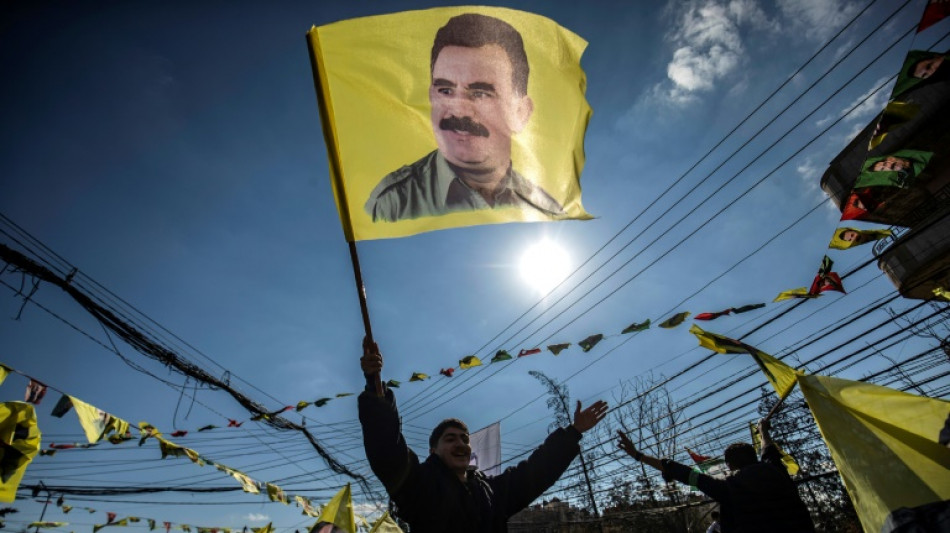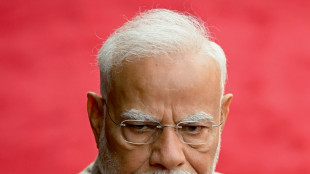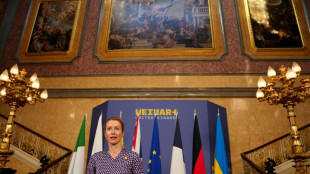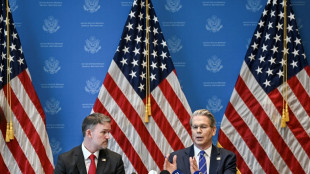

Kurdish militant group PKK says disbanding, ending armed struggle
The Kurdistan Workers' Party (PKK) on Monday announced its dissolution, saying it was ending its armed struggle against the Turkish state and drawing a line under its bloody four-decade insurgency.
Founded in the late 1970s by Abdullah Ocalan, the PKK carried out attacks aimed at defending Kurdish autonomy in Turkey that cost more than 40,000 lives.
"The 12th PKK Congress has decided to dissolve the PKK's organisational structure and end its method of armed struggle," the group said in a statement published by the pro-Kurdish ANF news agency.
The move was welcomed by President Recep Tayyip Erdogan's AKP party as an "important step", saying the implementation of the process would be "meticulously monitored" by the government.
The historic announcement came after an appeal by Ocalan, who on February 27 urged his fighters disarm and disband in a letter from Istanbul's Imrali prison island, where he has been held since 1999.
He also asked the PKK to hold a congress to formalise the decision, which the call and declared a ceasefire, holding its congress early last week in Iraq's Kandil mountains.
There its leader took "decisions of historic importance concerning the PKK's activities", ANF had reported on Friday.
AKP spokesman Omer Celik said if the decision were "implemented in practise and realised in all its dimensions" it would open the door to a new era.
"The PKK's decision to dissolve itself and lay down its arms following the call from Imrali is an important step towards a terror-free Turkey," Celik said.
"The full and concrete implementation of the decision to dissolve and surrender arms... will be a turning point," he added, saying the process would be "meticulously monitored" by the government.
- 'Huge win for Erdogan' -
The declaration was the culmination of seven months of work to renew long-stalled talks that began in October when Ankara offered Ocalan an unexpected olive branch.
"If the PKK announces it is disbanding and finalises the process without any road accidents, that will be a huge win for Erdogan," Gonul Tol of the Washington-based Middle East Institute told AFP.
She said seeking a rapprochement with the Kurds was very much related to domestic politics, coming just months after Erdogan's AKP suffered a blow at the ballot box.
Analysts say a deal with the Kurds could allow Erdogan to amend the constitution and extend his term in office, while simultaneously driving a wedge between pro-Kurdish parties and the rest of Turkey's opposition.
"The main driver behind this Ocalan opening has always been about consolidating Erdogan's rule. Because if this whole process succeeds, he will go into the 2028 elections as a stronger candidate who is facing a divided opposition," Tol said.
In a weekend speech, Erdogan hinted the dissolution could be announced at any moment, saying that "We are advancing with firm steps on the path toward the goal of a terror-free Turkey".
The PKK, designated a terrorist group by Ankara, Washington and Brussels, has waged an insurgency against the Turkish state since 1984.
Its original aim was to carve out a homeland for Kurds, who make up about 20 percent of Turkey's 85 million people.
F.al-Ghaith--BT




